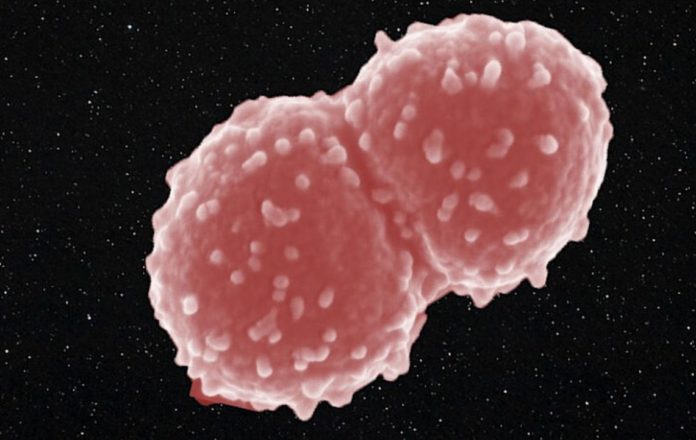The bacterium ‘Deinococcus radiodurans’ has survived after spending a year on a specially designed platform outside the pressurized module of the International Space Station. This means that it could survive in other environments as well, an increasingly important finding.
Researchers have been studying these powerful microbes since 2015 when an international team established the Tanpopo mission outside Japan’s Kibo experimental module to test ultra-resistant species of bacteria. Deinococcus radiodurans has passed the test successfully.
The bacterial cells were dehydrated, sent to the ISS, and placed in a special facility – a platform continuously exposed to the space environment – where they were behind a glass window that blocked UV light at wavelengths less than 190 nanometers.
“The results suggest that survival of D. radiodurans in LEO for a longer period is possible due to its efficient molecular response system and indicate that even longer, farther journeys are achievable for organisms with such capabilities”
said Tetyana Milojevic, the corresponding author of the study and head of Space Biochemistry group at the University of Vienna.
After a year of radiation, freezing and boiling temperatures, and zero gravity, the researchers got the bacteria back to Earth. They then rehydrated both the control sample that had passed this year on Earth and the Low Earth Orbit sample, and compared their results.
The survival rate was much lower for the bacteria from orbit compared to the control sample, but the bacteria that survived appeared to be fine. However, they were covered with numerous outer membrane vesicles on the surface, some repair mechanisms had also been activated and some proteins had become more abundant.
The team isn’t exactly sure why the vesicles formed, but they believe that a rapid response to stress is a plausible version.
This type of study helps to understand whether bacteria could survive in other environments and also during a journey between them, which could be important for the future of humans.
“These investigations help us to understand the mechanisms and processes through which life can exist beyond Earth, expanding our knowledge how to survive and adapt in the hostile environment of outer space. The results suggest that survival of D. radiodurans in LEO for a longer period is possible due to its efficient molecular response system and indicate that even longer, farther journeys are achievable for organisms with such capabilities”
said Vienna University biochemist Tetyana Milojevic.
